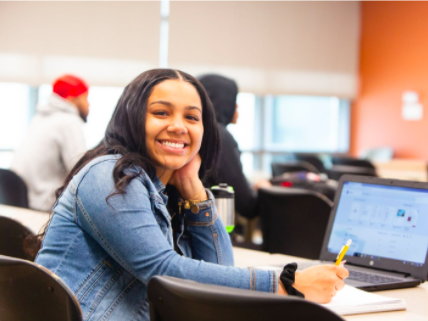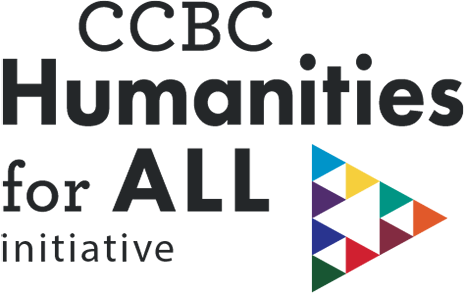
What are the humanities?
When it comes to thinking about what it means to be human, nothing is more powerful than what we can learn from the humanities. They allow us to ask questions, change our point of view, and more importantly, learn empathy — the ability to put yourself in someone else’s position. In this month’s blog, let’s look at some of the major myths surrounding humanities and the facts that may surprise you.
Myth #1: The humanities are about art and philosophy and not about the sciences.
Reality: Did you know that if you’re currently enrolled in any of the STEM academic pathways, you can still participate in the Humanities for All initiative? Taking a course, such as CMNS 101 – Fundamentals of Communication, can complement any science or technology pathway because it’ll help you to understand how to communicate your ideas better, understand potential pushback, and even help you to bring people together.
And, to top it all off, recruiters nowadays are looking for exactly that — students who are taking on subjects that seem very different from their main academic interests. It shows that you’re unafraid of new challenges and that you’re interested in learning beyond your comfort zone. George Lucas said it best: “The sciences are the ‘how,’ and the humanities are the ‘why’ – why are we here, why do we believe in the things we believe in. I don’t think you can have the ‘how’ without the ‘why.’”
Myth #2: The humanities aren’t for serious students
Reality: It’s unavoidable — humanities have a bad reputation because previously people thought subjects like ethics and history didn’t lead to profitable jobs. This isn’t the case anymore. Some of the world’s leading CEOs studied humanities at university — in fact, 60% of Fortune 500 CEOs studied the humanities! Susan Wojcicki, the CEO of YouTube, graduated with a BA in History and Literature. And there’s Howard Schulz, the founder of Starbucks, who rose through the corporate ranks after graduating with a bachelor’s degree in communications. If the humanities interest you, don’t worry about being judged for choosing a so-called easier route. Recruiters and employers will respect your curiosity and your open-mindedness.
Myth #3: The humanities require talent, not skill
Reality: Anyone can study the humanities. You don’t have to be good at writing or a genius at public speaking. Humanities can enhance the skills you already have and/or complement your academic pathway. One CCBC student in the Criminal Justice and Law Pathway said it best when talking about his English composition source: “It helped me to learn and write things from the perspective of the criminal justice system. The best part was that the professor used real-life examples throughout the class I could actually apply what I was learning and see the importance of writing and grammar in my field.”
You don’t have to have a natural talent for the humanities — just the willingness to learn is enough to help your goals in the future.
Myth #4: Humanities subjects are boring
Reality: The range of subjects on offer within the humanities is incredible! There is no possible way you’ll get bored because there’s something for everyone. Interested in technology and how they affect communities? Why not take CSIT 120 – Diversity in a Technological Society. Curious about people in general? Why not explore ANTH 101: Introduction to Cultural Anthropology. The list goes on.
Students who participate in the Humanities for All initiative also have the opportunity to go on field trips, attend talks given by well-respected and famous guest speakers, and genuinely get to discover topics that they hadn’t thought about before. Studying the humanities can even help revive interest in your career goals. According to a 2018 Multi-Institutional U.S. Survey, doctors who studied the humanities were less likely to experience “burnout.”
When it comes to studying the humanities, the range of subjects on offer couldn’t be more diverse. Students who enroll get to discover the different sides of what makes us human — and come out as more informed, confident, and empathetic individuals. Michelle Obama said, “The humanities define who we are as a people. That is their power — to give us hope in the moments of struggle and to bring us together when nothing else will.” If you’re curious, why not check out the Humanities for All initiative? You never know what you might learn.

